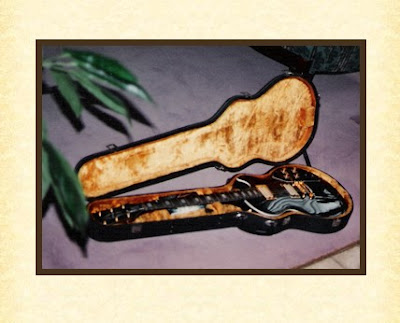
A few years ago I was approached by a fellow who had a Gibson Les Paul Recording Guitar which was a variation of the established model. Back in the early 1970s, Gibson began experimenting with new models such as the "Les Paul Recording." This model is often eschewed by guitar purists: considered too full of "gadgetry." The "Recording" featured low-impedance pickups, many switches and buttons, and a highly specialized cable for impedance-matching to the amplifier.
The instrument I received had a badly damaged finish. At one time someone had modified the instrument by removing the low impedance pickups and replaced them with traditional humbuckers. This entailed filling the original pickup cavities and re-routing new ones appropriate for the humbuckers.
As the instrument had no value in the condition that it was in, I proceeded to make it both playable and ascetically pleasing.
Below are a few of the steps in the progression of the rebuild.

 Body spray painted with gloss black water based Hydrocote brand finish. Clearcoat Hydrocote sprayed as topcoat. Finish is "rubbed out" using a variety of abrasives from 'Micromesh' cloth to powdered abrasives such as Pumice and Rottenstone in water or paraffin oil. Final gloss is achieved with Meguier brand automotive finish compounds.
Body spray painted with gloss black water based Hydrocote brand finish. Clearcoat Hydrocote sprayed as topcoat. Finish is "rubbed out" using a variety of abrasives from 'Micromesh' cloth to powdered abrasives such as Pumice and Rottenstone in water or paraffin oil. Final gloss is achieved with Meguier brand automotive finish compounds. Making sure hardware fits. Caution! A nice tight fit may be reduced in size due to the thickness of the finish used.
Making sure hardware fits. Caution! A nice tight fit may be reduced in size due to the thickness of the finish used. New White binding attached to channel on guitar edge with Acetone based plastic cement.
New White binding attached to channel on guitar edge with Acetone based plastic cement.
Binding secured with tape while glue dries. Fret removal using soldering iron and pliers.
Fret removal using soldering iron and pliers.
(Heat softens old glue and lessens wood chipping during removal) Frets cut to size and ends of frets are "nipped" using special tool.
Frets cut to size and ends of frets are "nipped" using special tool.
Nipped ends of frets allow frets to run over binding without passing through them. Copper shielding glued into all electronics cavities to reduce extraneous electronic interference. Alternatively a metal particle paint can be used.
Copper shielding glued into all electronics cavities to reduce extraneous electronic interference. Alternatively a metal particle paint can be used.
(extra contact cement ensures sticky copper back will adhere) Potentiometers (Volume & Tone) & Selector Switch with Output Jack on underside of copper shielded control cavity cover.
Potentiometers (Volume & Tone) & Selector Switch with Output Jack on underside of copper shielded control cavity cover.
(Cavity cover made four photos above)
Sunday, 2 November 2008
Gibson Les Paul Recording Guitar Rebuild
(SelectedPhotos Follow Below)
* * *
Stripping old finish off of the Guitar body using a 3-M environmentally safe paint stripper
* * *
Posted by
Yuri
at
20:07
![]()
Labels: Gibson Les Paul Recording Guitar, Rebuild
Subscribe to:
Post Comments (Atom)

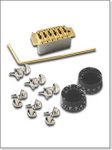

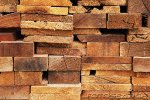
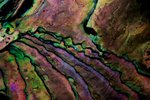
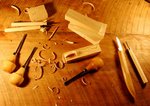



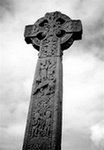














6 comments:
Awesome!
Wow! That's amazing! Nice rebuild, man. Thanks for posting the photos, I really enjoyed seeing the process. All the best!
Awesome work! MInd if I ask where you found the switch plate? I need to replace mine. bandmate stepped on cord and ripped a chunk out of the original.
For magdog.
The switchplate (or electronics bay) cover was cut from stock material (there is a photo in this post of it being cut on the band saw). The raw material was purchased from Stewart-MacDonald Guitar Supplies in Athens Ohio (www.stewmac.com)
Not sure where you might be able to buy an original - try e-mailing some reputable repair shops.
Cheers, Y.A.
Hi Yuri, very nice job, congratulation. My name is Michel, i live in Belgium ( europe ). I just buy a recording les paul in US (ebay)serial 622981, but i have some trouble with my electronics, can you give me some info about schematics ? Do you have some good links for me ? I want to restore it like original.
My adress : salmichs@hotmail.com
Thanks and best regards
Amazing post and brilliant job has done by you. I was just thinking how to repair my old Gibson guitar, that belongs to my dad. Well I have purchased (https://faberusa.com/)parts for gibson guitar, but was not confident enough to do the repairing. So I was looking for some special tips or case study on guitar repair. You have done lots of changes. Luckily I have to do little changes there. Thanks for sharing.
Post a Comment